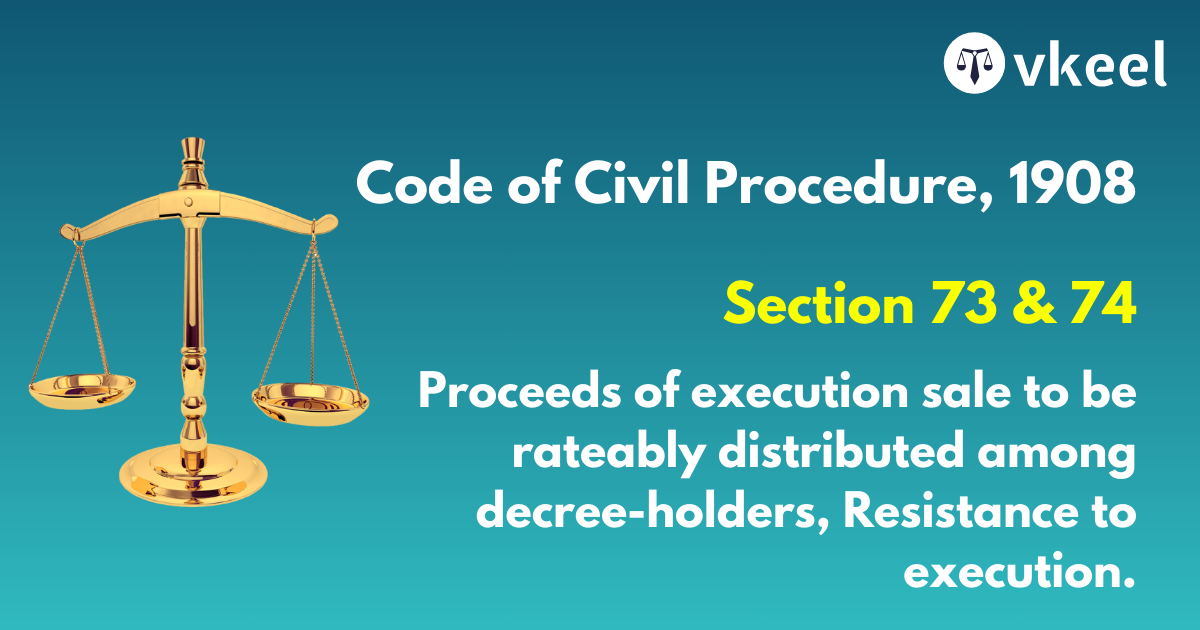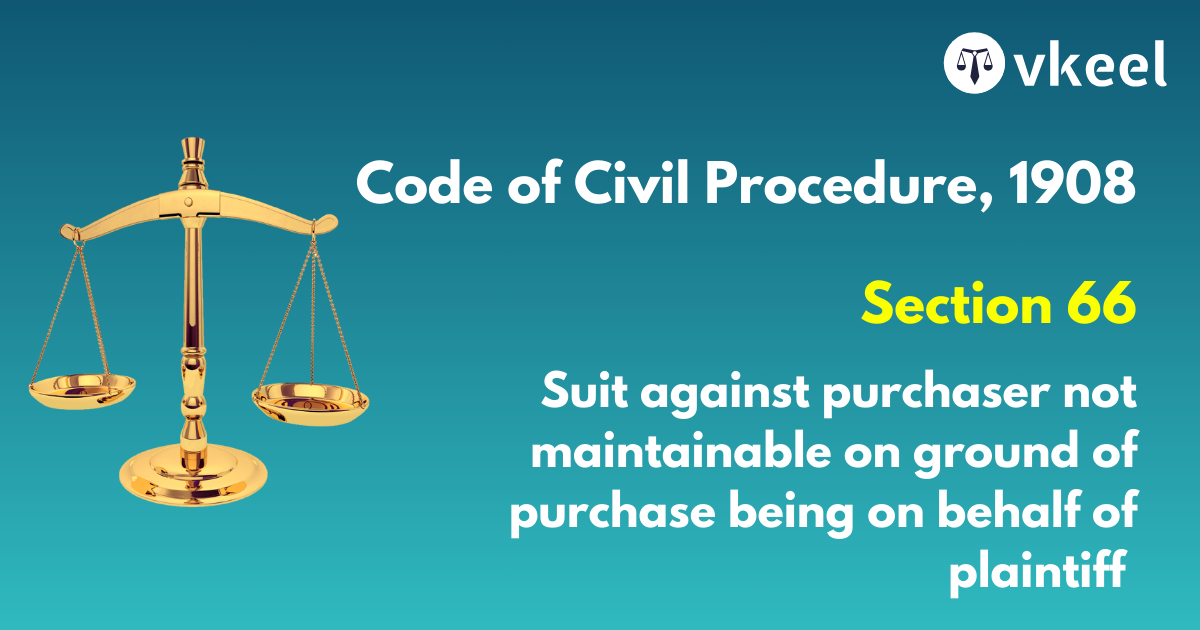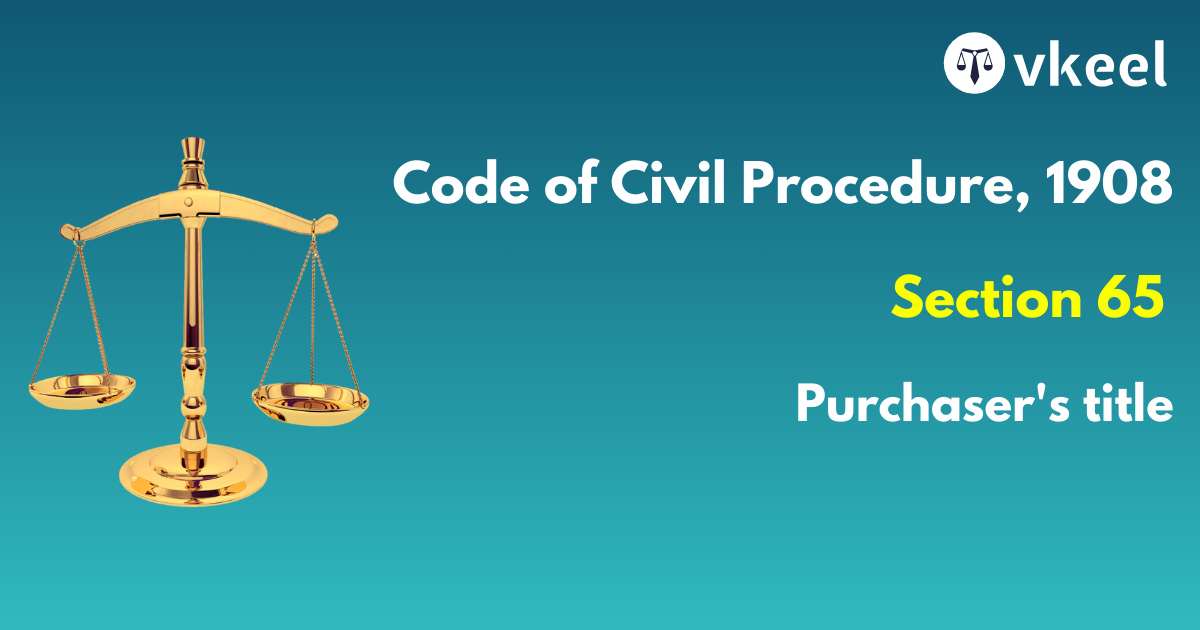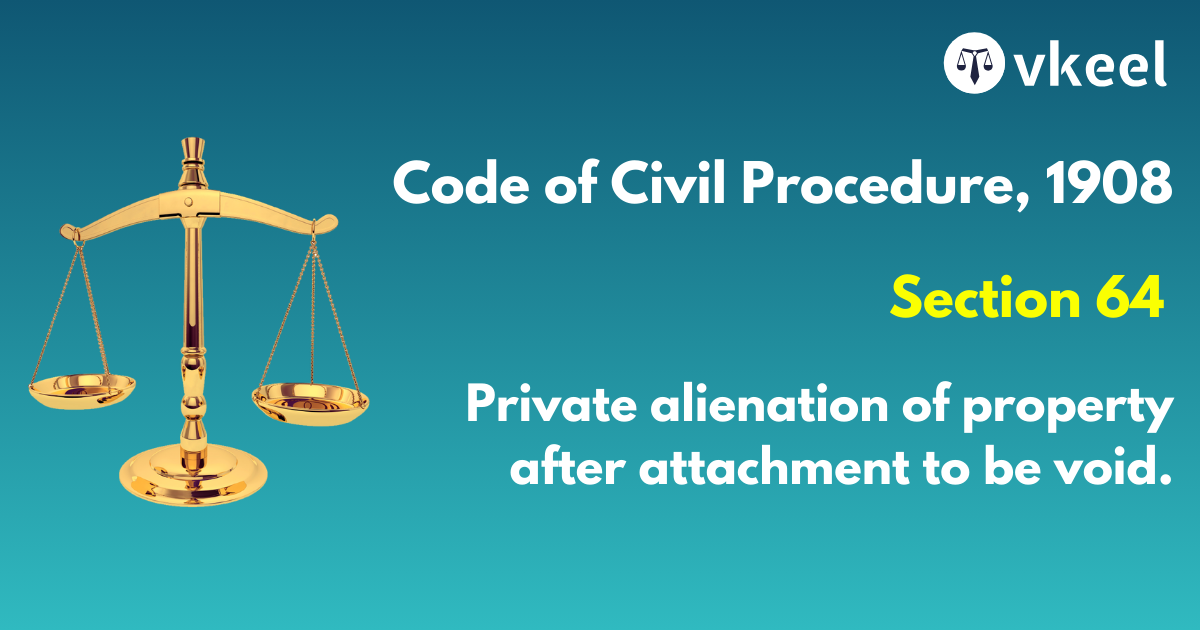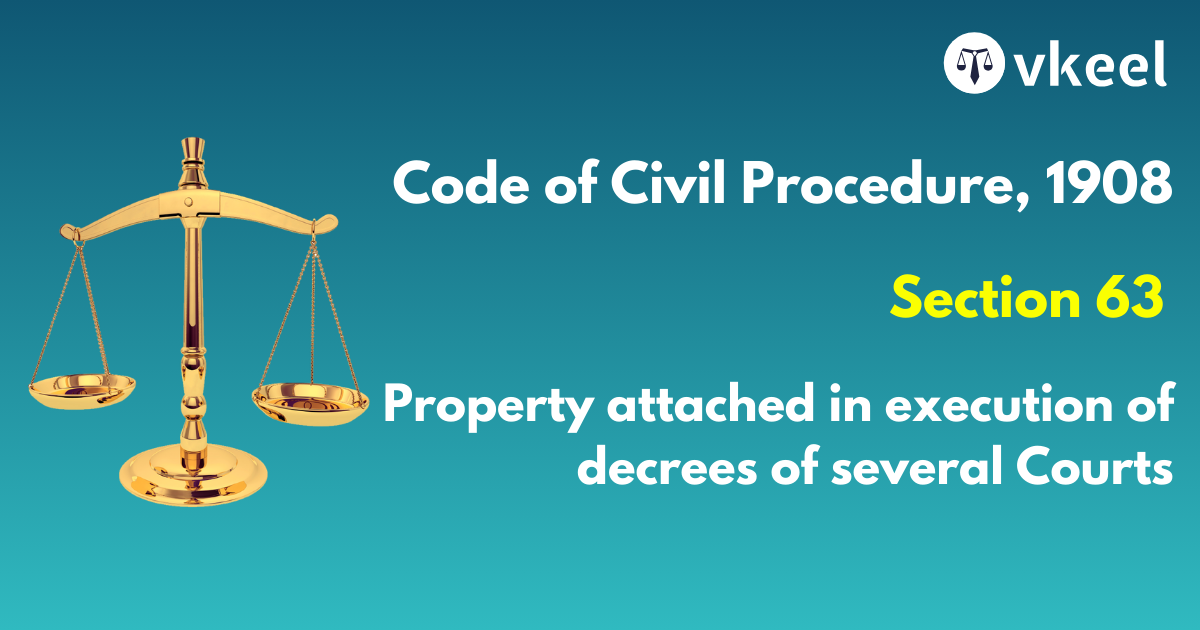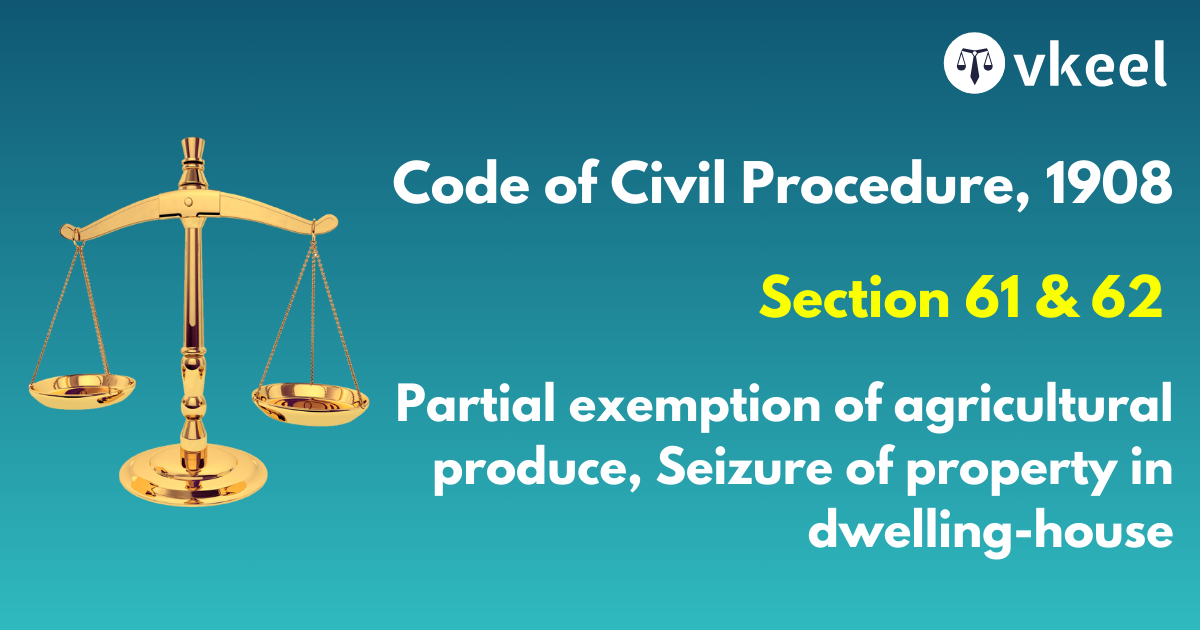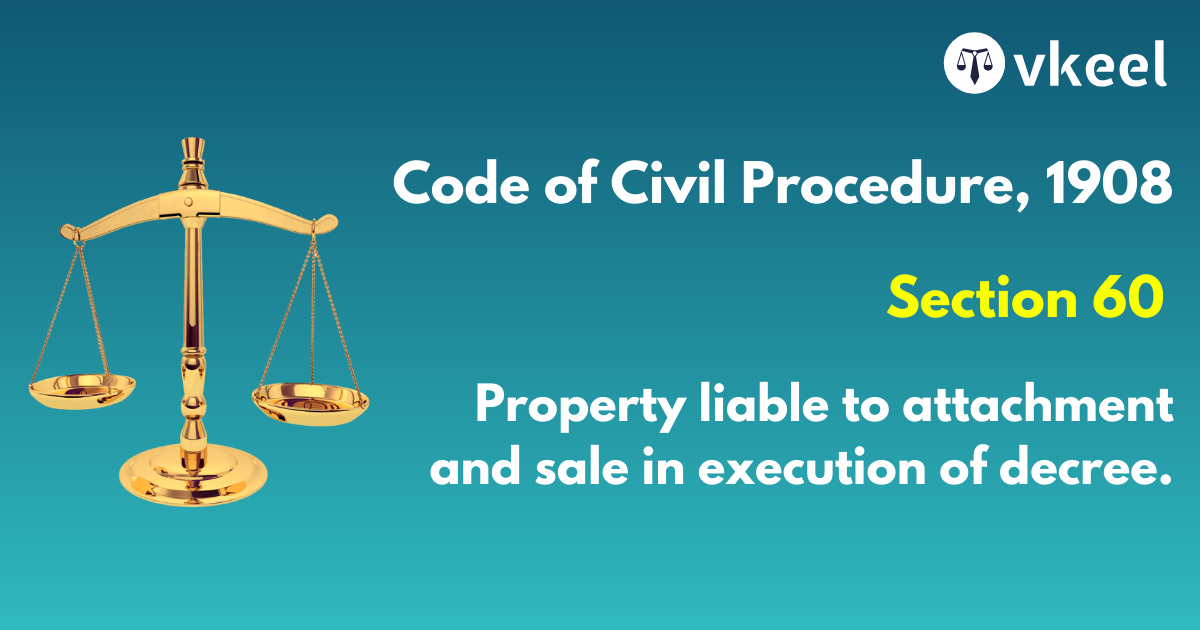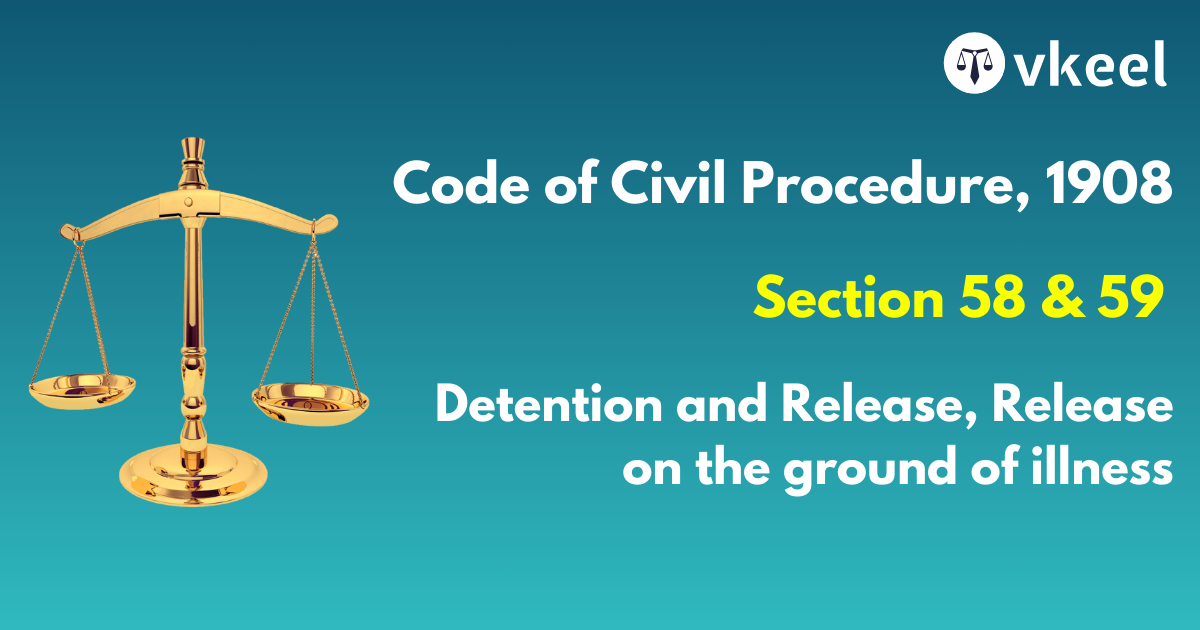Section 42 of the Code of Civil Procedure,1908
By Joy Puri
Introduction
The Section 42 of the Code of Civil Procedure talks about the powers of the respective courts in executing the transferred decree.
The Section 42 of the Code of Civil Procedure further allows the receiving court to exercise all the powers necessary to enforce the decree, including ordering the attachment of property, arresting and detaining the judgment debtor, and granting other forms of relief as required by the decree.
Section 42 of the Code of Civil Procedure,1908
Powers of Court in executing transferred decree.
(1) The Court executing a decree sent to it shall have the same powers in executing such decree as if it had been passed by itself. All persons is disobeying or obstructing the execution of the decree shall be punishable by such Court in the same manner as if it had passed the decree. And its order in executing such decree shall be subject to the same rules in respect of appeal as if the decree had passed by itself.
(2) Without prejudice to the generality of the provisions of sub-section (1), the powers of the Court under that sub-section shall include the following powers of the Court which passed the decree, namely: –
(a) power to send the decree for execution to another Court under section 39;
(b) power to execute the decree against the legal representative of the deceased judgment-debtor under section 50;
(c) power to order attachment of a decree.
(3) A Court passing an order in exercise of the powers specified in sub-section (2) shall send a copy thereof to the Court which passed the decree.
(4) Nothing in this section shall be deemed to confer on the Court to which a decree is sent for execution any of the following powers, namely: –
(a) power to order execution at the instance of the transferee of the decree;
(b) in the case of a decree passed against a firm, power to grant leave to execute such decree against any person, other than such a person as is referred to in clause (b),or clause (c), of sub-rule (1) of rule 50 of Order XXI.
STATE AMENDMENT
Uttar Pradesh
Substitution of new section for section 42 of Act V of 1908.–For section 42 of the Code of Civil Procedure, 1908, as amended in its application to Uttar Pradesh (hereinafter referred to as the said Code) the following section shall be substituted and be deemed to have been substituted with affect from December 2, 1968, namely :–
“42. Power of court in executing transferred decree. (1) The Court executing a decree sent to it shall have the same powers in executing such decree as if it had been passed by itself. All persons disobeying or obstructing the execution of the decree shall be punishable by such Court in the same manner as if it had passed the decree, and its order in executing such decree shall be subject to the same rules in respect of appeal as if the decree had been passed by itself.
(2) Without prejudice to the generality of the provisions of sub- section (1), the powers of the Court under that sub-section shall include the following powers of the Court which passed the decree, namely —
(a) power to send the decree for execution to another Court under section 39 ;
(b) power to execute the decree against the legal representative of the deceased judgment-debtor under section 50 ;
(c) power to order attachment of a decree;
(d) power to decide any question relating to the bar of limitation to the executability of the decree ;
(e) power to record payment or adjustment under rule 2 of Order XXI;
(f) power to order stay of execution under rule 29 of Order XXI;
(g) in the case of a decree passed against a firm, power to grant leave to execute such decree against any person other than a person as is referred to in clause (b) or clause (c) of sub-rule (1) of rule 50 of Order XXI.
(3) A Court passing an order in exercise of the powers specified in sub-section (2) shall send a copy thereof to the Court which passed the decree.
(4) Nothing in this section shall be deemed to confer on the Court to which a decree is sent for execution, the power to order execution at the instance of the transferee of a decree.”
[Vide Uttar Pradesh Act 14 of 1970, s. 2]
Landmark Case Laws
Ram Murti Devi v Ralla Ram Tulsi Ram, 1987
These two matters have been expressly excluded from the purview of the transferee court and the proceedings relating thereto are to be held only by the court which passed the decree. If the transferee by operation of law wants to execute a decree in his capacity as a transferee by making an application under section 42(4)(a) he cannot file such an application in the transfer Court. If the application for execution had already been filed by the original decree-holder, then the legal representative of such a person can continue with the execution proceedings.
Subramanian v Ramanathan,1929
Decisions do not appear to agree as to whether the court to which a decree is transferred for execution has power to decide that it is barred by limitation. The view has been taken in some cases that if the judgment-debtor does not raise all objections to the executability of the decree, e.g., limitation &c, he is precluded from raising such pleas in later execution on the ground of constructive res judicata.
Conclusion
The Section 42 of the Code of Civil Procedure, 1908 ensures that a decree can be executed across different jurisdictions within India, maintaining uniformity and efficiency in the enforcement process.
Disclaimer:
The information provided in the article is for general informational purposes only, and is not intended to constitute legal advice or to be relied upon as a substitute for legal advice. Furthermore, any information contained in the article is not guaranteed to be current, complete or accurate. If you require legal advice or representation, you should contact an attorney or law firm directly. We are not responsible for any damages resulting from any reliance on the content of this website.



